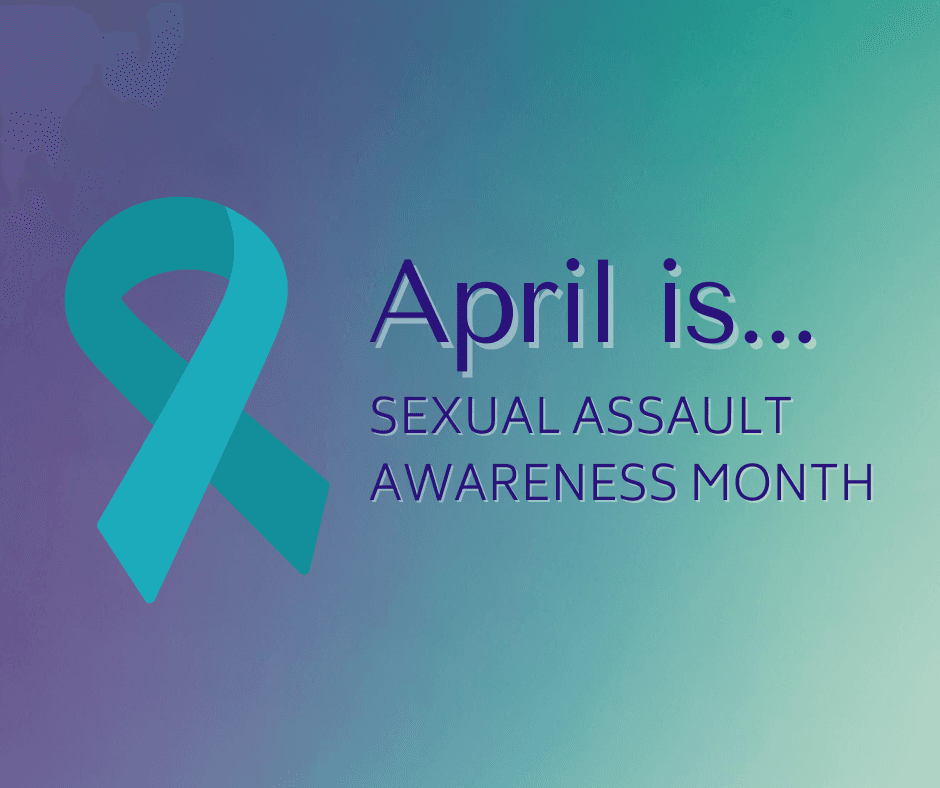
In April, as we observe Sexual Assault Awareness Month (SAAM), it's essential to recognize the interconnectedness of sexual assault with other forms of violence, particularly domestic violence. Sexual assault isn't an isolated issue; it's deeply ingrained within the broader context and culture of violence prevalent in the United States and globally.
This SAAM, the New York State Coalition Against Domestic Violence (NYSCADV), acknowledges that systems of oppression such as racism, sexism, classism, heterosexism, ageism, and ableism significantly contribute to elevated rates of domestic violence, sexual harassment, assault, and abuse among marginalized communities.
Consider these staggering statistics:
- More than 1 in 4 non-Hispanic Black women in the United States have experienced rape in their lifetime.
- Over 4 in 5 American Indian and Alaska Native women have faced violence at some point in their lives.
- 1 in 3 Hispanic women reported unwanted sexual contact in their lifetime.
- Nearly a third of adults with intellectual disabilities have experienced sexual violence.
- Almost half of all transgender individuals have been sexually assaulted at some point in their lives.
These numbers underscore the urgent need to dismantle all forms of oppression to combat sexual violence worldwide effectively. Recognizing the interconnectedness between various forms of oppression and the root causes of sexual assault is crucial for creating comprehensive and sustainable change. However, this endeavor requires acknowledging historical injustices and understanding how privilege and complacency perpetuate oppression.
This year's SAAM campaign theme, "Building Connected Communities," emphasizes the importance of fostering supportive networks at all levels—individuals, communities, organizations, and institutions—to mitigate the risk of sexual abuse, assault, and harassment. Whether in physical neighborhoods, workplaces, campuses, organizations, or online spaces, every community creates safer environments.
NYSCADV remains steadfast in its commitment to collaborate with our sister coalitions in New York State, the New York State Coalition Against Sexual Assault and the Seven Dancers Coalition, as well as state partners and allies. Together, we confront and prevent sexual assault in our communities while addressing the systemic oppressions that exacerbate rates of sexual harassment, assault, and abuse.
Throughout SAAM, NYSCADV will engage in virtual activities to raise awareness, provide support, and enhance public education. By standing together and building connected communities, we can work towards a future free from sexual violence and oppression. Want to get involved? Here are some things you can do:
- Participate in SAAM Day of Action by wearing teal on April 2nd and sharing on social media.
- Participate in the #30DaysofSAAM Challenge
- Wear Denim on Denim Day April 24th and share on social media.
- Join the Start by Believing Campaign.
- Start a campaign in your school, workplace or other group focusing on SAAM.
For more information on SAAM and ideas to show your support, check out these resources below:
- New York State Coalition Against Sexual Assault (NYSCASA): NYSCASA is a nonprofit coalition of community-based rape crisis programs located throughout New York State whose mission is to end all forms of sexual violence and exploitation and address the impacts of sexual assault. Be sure to keep an eye on NYSCASA's website calendar and social media to learn about SAAM events happening across New York State and the nation!
- Seven Dancers Coalition: A New York State-based nonprofit whose mission is to uplift the families of Indigenous Communities by educating and restoring traditional values to strengthen self-confidence and dignity.
- National Sexual Violence Resource Center (NSVRC): NSVRC is commemorating 20th Sexual Assault Awareness Month with the theme "We can build safe online spaces." Sexual harassment, assault, and abuse can happen anywhere, including in online spaces. As we connect online, we can learn how to practice digital consent, intervene when we see harmful content or behaviors, and ensure that online spaces — whether workspaces, classrooms, social media platforms, or otherwise — are respectful and safe.
- Rape, Abuse & Incest National Network (RAINN): RAINN is the nation's largest anti-sexual violence organization. RAINN created and operated the National Sexual Assault Hotline (800.656.HOPE, online.rainn.org, and rainn.org/es) in partnership with more than 1,000 local sexual assault service providers across the country. During SAAM, RAINN asks individuals and communities across the country to engage with this issue by learning more about sexual violence, sharing information, bringing the community together, volunteering and donating.
- STOP SV: A Technical Package to Prevent Sexual Violence: A resource developed by the Centers for Disease Control to help communities take advantage of the best available evidence to prevent sexual violence.
References
Basile, K. C., Smith, S. G., Kresnow, M., Khatiwada S., & Leemis, R. W. (2022). The National Intimate Partner and Sexual Violence Survey: 2016/2017 report on sexual violence. Centers for Disease Control and Prevention. https://www.cdc.gov/violenceprevention/pdf/nisvs/nisvsReportonSexualViolence.pdf
James, S. E., Herman, J. L., Rankin, S., Keisling, M., Mottet, L., & Anafi, M. (2016). The report of the 2015 U.S. Transgender Survey. National Center for Transgender Equality. https://transequality.org/sites/default/files/docs/usts/USTS-Full-Report-Dec17.pdf
Rosay, A. B. (2016, September). Violence against American Indian and Alaska Native women and men, NIJ Journal, 277. National Institute of Justice. http://nij.gov/
Journals/277/Pages/violence-againstamerican-indians-alaska-natives.aspx Tomsa, R., Gutu, S., Cojocaru, D., Gutiérrez-Bermejo, B., Flores, N., & Jenaro, C. (2021). Prevalence of sexual abuse in adults with intellectual disability: Systematic review and meta-analysis. International Journal of Environmental Research and Public Health, 18(4), 1980. https://doi.org/10.3390/ijerph18041980


